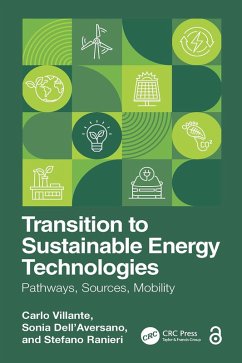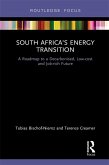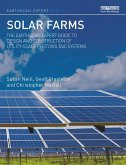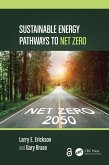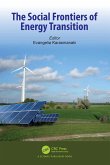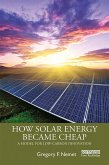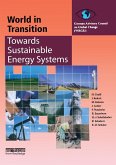Features:
- Offers an interdisciplinary approach to energy transitions combining theoretical frameworks with practical applications.
- Explores the full spectrum of energy systems, comparing conventional to renewable sources, energy vectors, and energy-storage technologies.
- Incorporates real-world data from leading institutions and integrates key historical milestones like the Paris Agreement with forward-looking trends.
- Highlights cutting-edge innovations, including solar and wind energy, hydrogen, energy-storage systems, synthetic fuels, and smart grids, and emphasizes their integration into energy systems and sustainable mobility solutions.
- Bridges the gap between socio-economic, environmental, and technological perspectives.
The Open Access version of this book, available at http://www.taylorfrancis.com, has been made available under a Creative Commons Attribution-Non Commercial-No Derivatives (CC BY-NC-ND) 4.0 license.
Dieser Download kann aus rechtlichen Gründen nur mit Rechnungsadresse in A, B, BG, CY, CZ, D, DK, EW, E, FIN, F, GR, HR, H, IRL, I, LT, L, LR, M, NL, PL, P, R, S, SLO, SK ausgeliefert werden.

